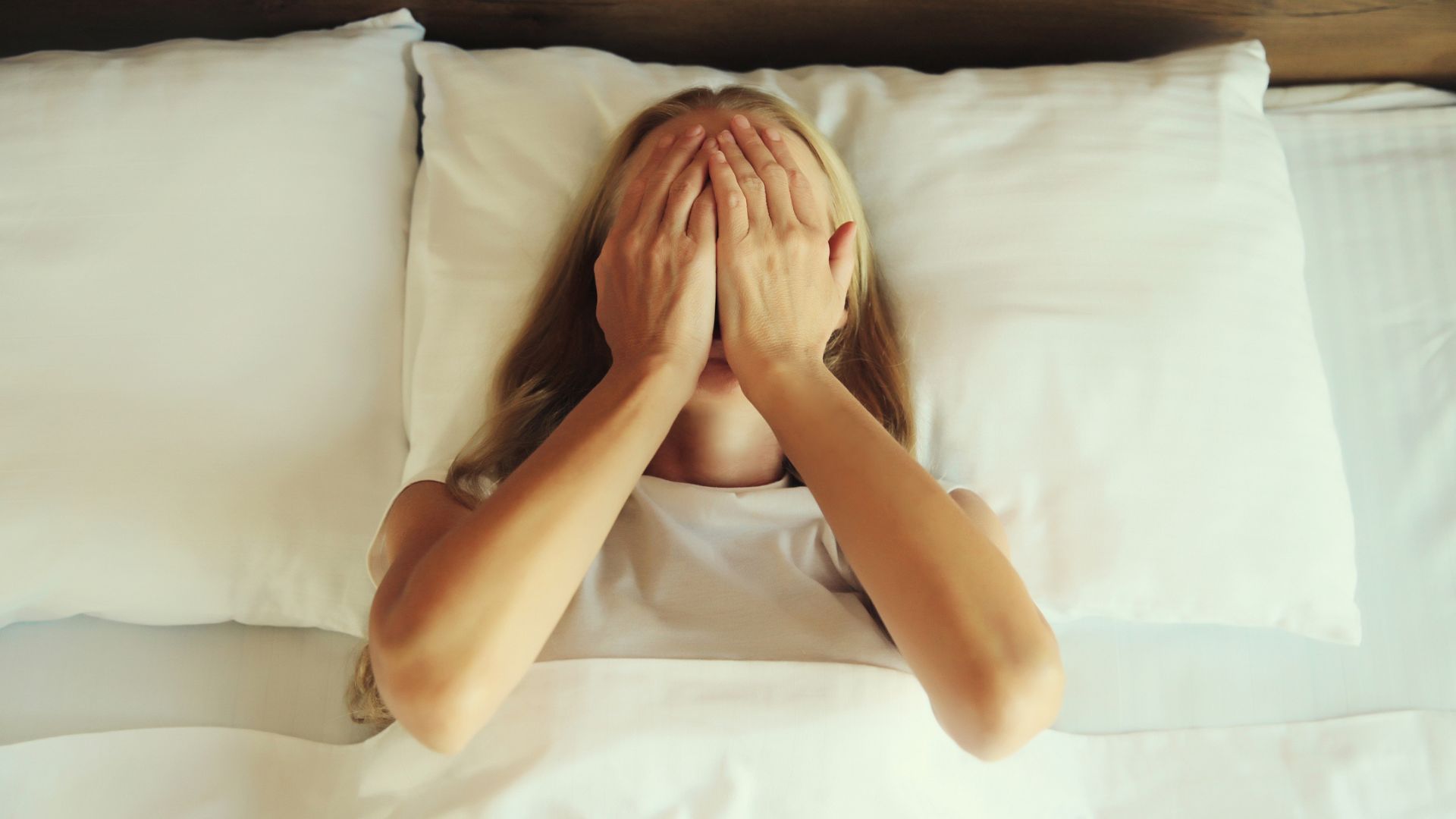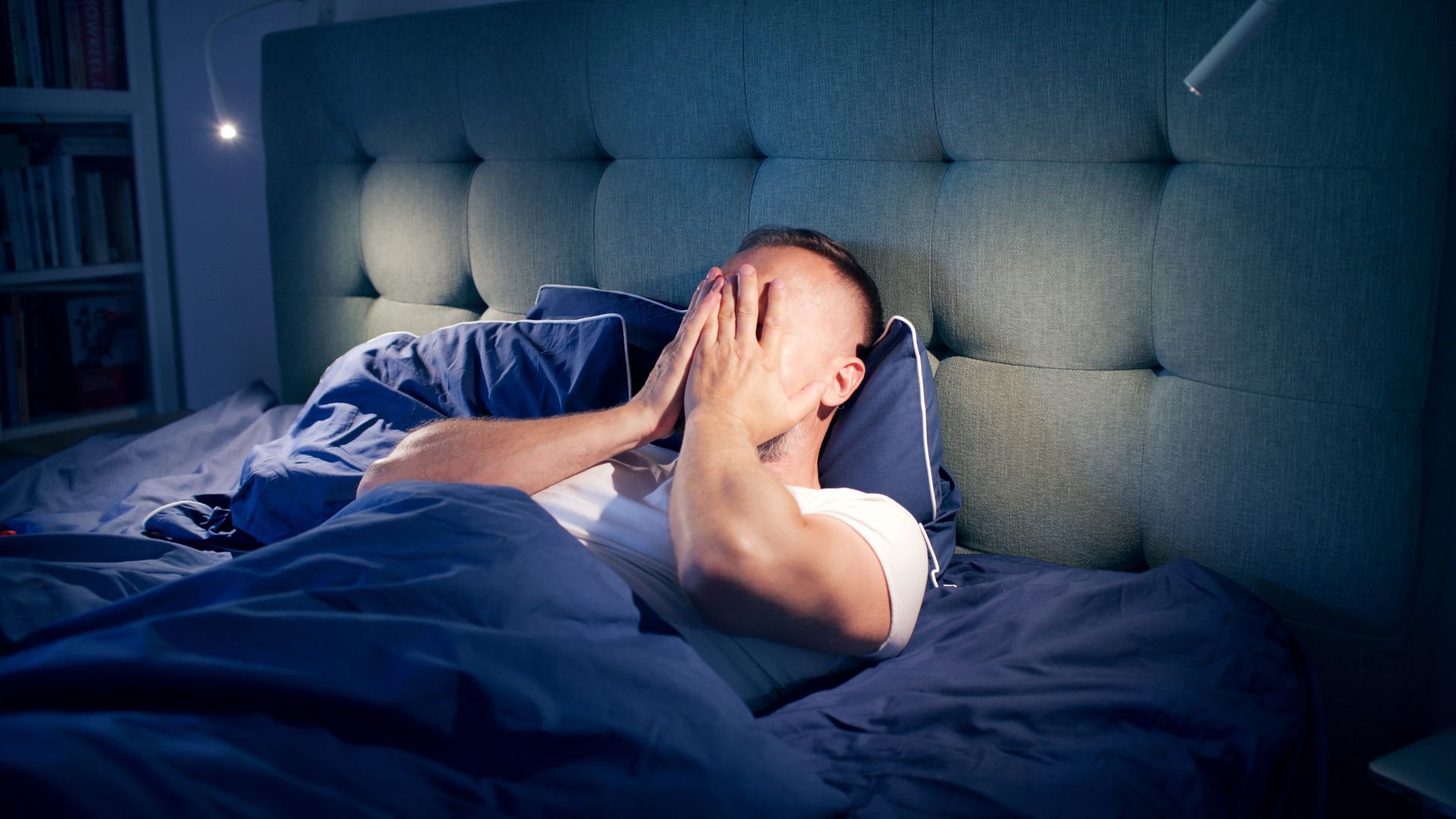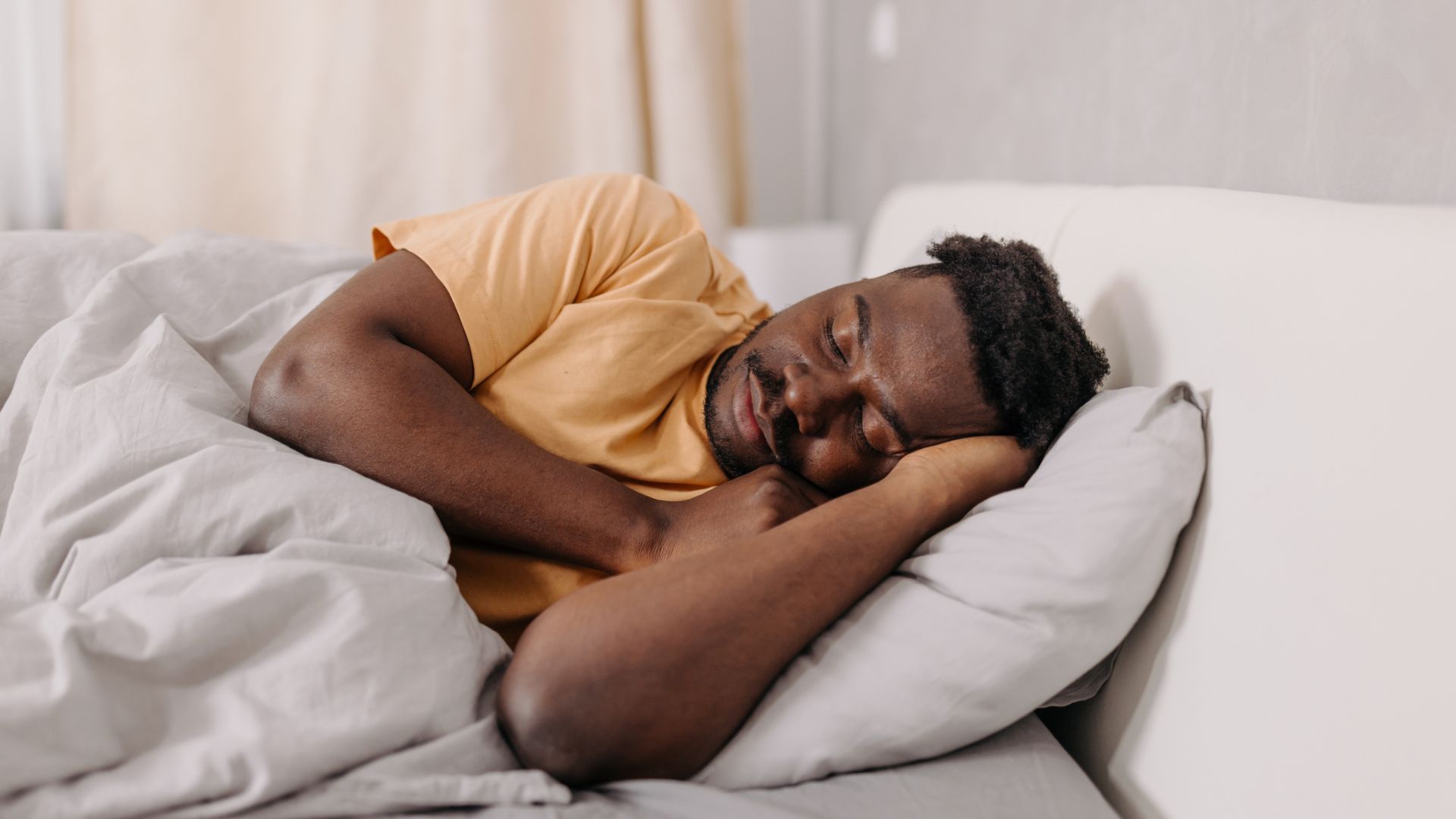How to stop nightmares, according to a sleep expert
We explore why nightmares happen, plus 7 pro tips to making them stop

Nightmares can be terrifying to experience - but knowing what causes nightmares, as well as identifying lifestyle habits and factors that can make them worse, will help stop bad dreams in their tracks.
There is different advice on how to stop nightmares, so we’ve gathered all the research and expert opinions on why they happen and what you can do to get back to sleep after a nightmare.
It could be stress, scary dreams or even eating too late that's causing you to wake up feeling frightened. With the help of sleep experts, we'll outline the common triggers of nightmares, as well as offering practical advice on how to keep them firmly at bay. Let's get started.
What are nightmares?

First, let's take a closer look at what nightmares actually are. A nightmare can be a frightening experience regardless of your age. Also known as a bad dream, where something terrifying is happening - when we wake up from a nightmare we often feel mentally and physically shaken.
Although researchers are still trying to figure out the root causes, it’s thought our subconscious is playing out something which we could be worried about happening to us or someone we love.
“Dreaming is thought to be our brain processing the day’s events and helping us regulate our emotions, this leads to speculation that nightmares may be linked to negative emotions and trauma processing while we sleep,” explains Sleep coach Nicole Ratcliffe.
What causes nightmares?
It's more than just horror films that can cause nightmares — although we have some tips on sleeping after scary movies. Certain factors and lifestyle habits can make us more prone to experiencing nightmares.
Sign up to get the BEST of Tom's Guide direct to your inbox.
Get instant access to breaking news, the hottest reviews, great deals and helpful tips.
1. Stress and anxiety
Stress is one of the biggest triggers of night terrors and nightmares. As our subconscious is on high alert and will therefore affect our dreams, or nightmares. Many studies show the direct link between stress, anxiety and nightmares.
Sleep Expert Andrew Bradley explains that: “Stress and anxiety through your day increases cortisol - and that stimulates your brain. It’s the reason tired people get into bed and then have racing thoughts. Avoiding social media, the news and exciting/scary TV or films before bed also helps with lowering our stress level and avoiding the prospect of scary dreams.”
2. Eating too late

Your body needs to know when it’s ready for bed, so if you eat late you’re signaling to the brain that it should be active, explains Bradley: “The timing of eating late, before bed, is a big contributor to nightmares or weird dreams. The process of digesting food after eating late at night throws the body into dysfunction as it has to work hard when it should be shutting down and repairing at night.”
3. Sleep disorders
Several studies suggest that sleep disorders, especially sleep apnea, where you stop breathing when you sleep, can increase the frequency of nightmares. This can be down to the stress on your body or disruption to your sleep cycles. Ratcliffe explains: “Sleep apnea and other sleep disorders can trigger nightmares due to the inability to get quality deep sleep.”
Can you actually stop nightmares?
Most of us can prevent nightmares by addressing the above triggers, such as trying to eradicate stress from our lives and looking at underlying issues such as sleep disorders. However, there are also steps in which we can stop nightmares, including identifying personal triggers and creating a sleep routine.
How to stop having nightmares — 7 expert tips
There are certain steps you can take to reduce the frequency of your nightmares, and potentially stop them entirely.
1. Identify triggers
Mental load or stress could be one of them - with Ratcliffe explaining that if this is the case you should talk about problems to friends and family – “reducing your mental load allows for better sleep, less stress and worry - meaning less chance of nightmares.”
2. Create a consistent sleep routine

Is your bed time all over the place? And what about lying in over the weekend? Bradley explains that creating consistent bedtimes is the most important factor for good sleep and hopefully less nightmares.
“Heading to bed in the same 15-minute window every night will align your circadian rhythm. From there, your body will settle into its optimum sleep length (usually 7-8 hours) and you’ll find that you wake up naturally in the same 15-minute window every day.” For more help on creating a consistent sleep routine, check out our guide on how to improve your sleep hygiene.
3. Build sleep pressure throughout the day
The sleep expert also says we should think of building up to sleep in the same way as packing a suitcase. Except the the destination we're packing for is between 7-9 hours of quality shut-eye. “You keep on layering the clothes in there, pull the lid down to see if it still closes, and then carry on adding to it. The more you pack into your day - physical and mental exertion - helps to build sleep pressure.”
4. Avoid screens before bedtime

Not only can blue light and screen affect our sleep cycles, but the content may also give us nightmares, explains Ratcliffe: “In the run-up to bedtime, avoid screens where you may be looking at the news, or films with violent imagery that could leave worrying thoughts that affect your sleep.”
5. Avoid spicy food
Sleep coach Ratcliffe explains certain foods affect our sleep architecture, these can “trigger irregularities in our sleep causing disturbances - and potentially trigger nightmares. It is thought that spicy food can be one of these triggers - due to difficulty digesting them; increasing our core body temperature while we sleep.”
However, if you are hungry before bed Bradley suggests a small handful of unsalted nuts: “Pistachios are good as they help promote the release of melatonin from their high magnesium content.”
6. Improve your sleep environment
Being uncomfortable, too hot or too cold or even when you have a lumpy pillow - these are all contributors of a disturbed night's sleep. If you are thinking of investing in a new mattress to improve your sleep environment, our guide to the best mattresses contains top-rated recommendations for all budgets and sleep needs. Plus, with the Labor Day mattress sales in full swing, now is an excellent time to buy any new bedding or sleep accessories you've had your eye on.
7. Increase your daily exercise

If you don’t already have a gym routine, sign up for your local yoga class or go for a walk at lunchtime, as frequent exercise can reduce the time it takes to fall asleep and increase the overall quality sleep. "[Regular exercise] helps reduce sleep onset, the length of time it takes to fall asleep, meaning you are likely to get more overnight sleep,” explains Ratcliffe.
How to go back to sleep after having a nightmare —3 pro tips
Tip 1: Breathwork
“Deep breathing can be effective in calming ourselves down,” says sleep coach Ratcliffe. She suggests certain breathing exercises: “This could be regulated breathing such as in for 4 and out for 7, or box breaths where we breathe in for 4, hold for 4 and out for 4.”
Tip 2: Break the cycle
Waking up in bed terrified will have certain implications, so if you can’t get back to sleep in the first 5 minutes, get out of bed and do something different, says the sleep coach. “If the content of the nightmare is affecting you, write the concerns down so they are out of your head, and you can process them in the morning.
“You can also read a page or 2 of a book with a soft light on, then get back into bed. Or visualise happy places you’ve been to.”
Tip 3: Body scan
Body scans, like meditation, bring us back to the present and help us focus on our own bodies, rather than worrying about a nightmare. Start from the top of your body, focussing on how you mentally and physically feel, without changing anything - and gradually go down your body as you scan it.
Sarah is a freelance writer who has been published across titles including Woman & Home, The Independent, and the BBC. Sarah covers a variety of subjects, including health and wellness. For Tom's Guide Sarah often writes about sleep health and hygiene, and interviews leading sleep experts about common issues such as insomnia and sleep deprivation.

